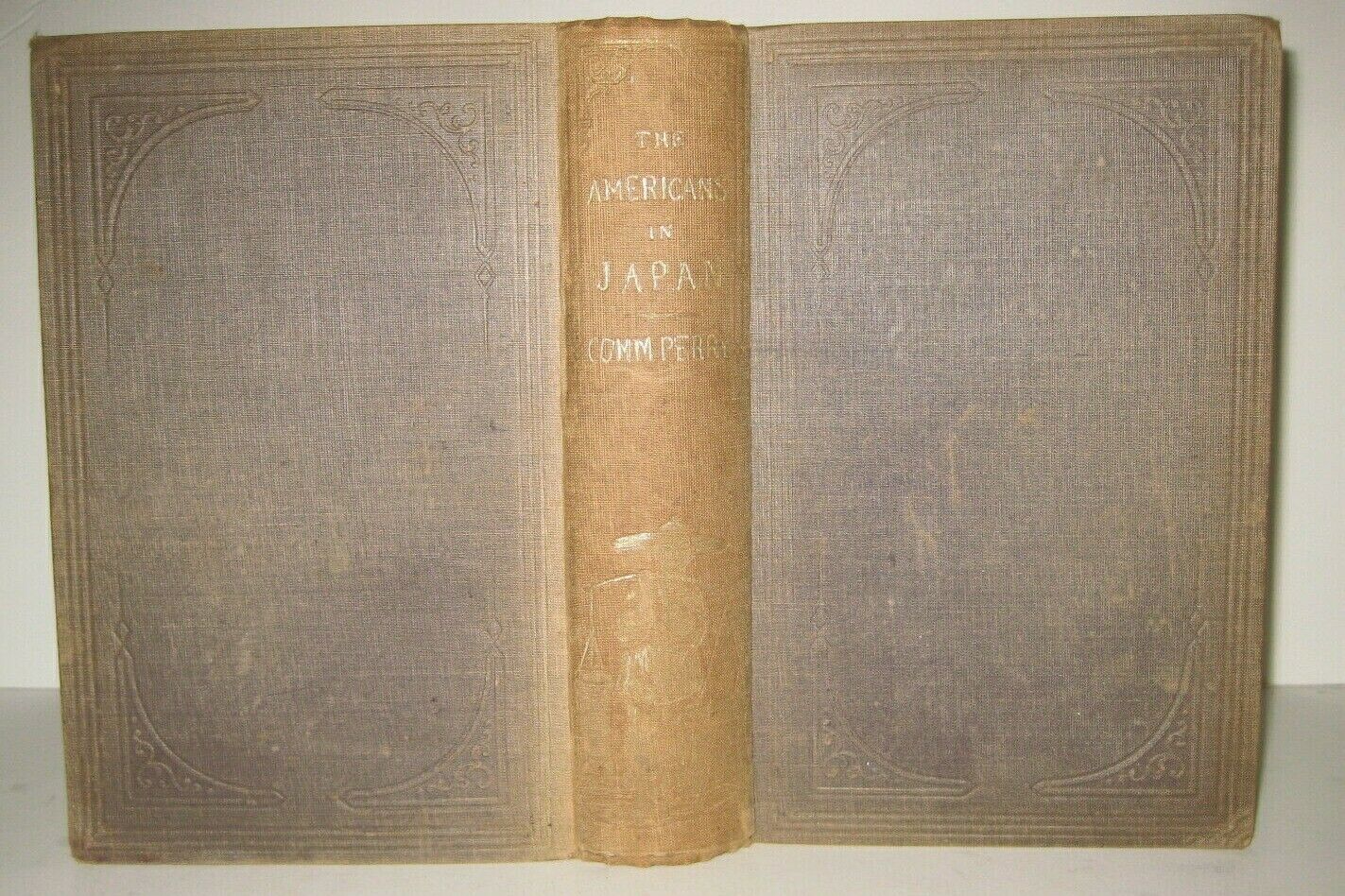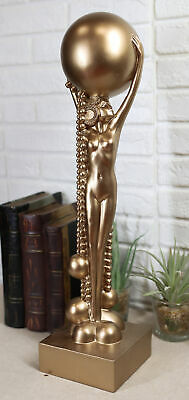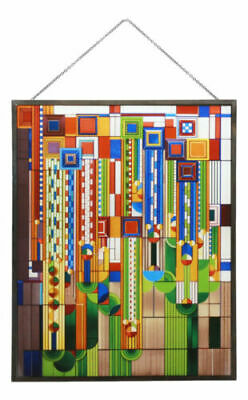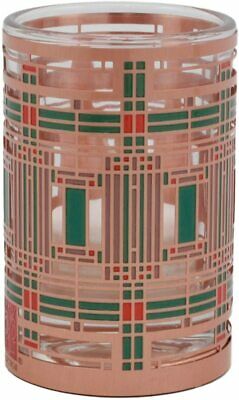-40%
RARE 🔥 1852 JAPAN EXPEDITION_ NAVY COMM PERRY_CHINA_HONG KONG_TEMPLES_RELIGIONS
$ 73.55
- Description
- Size Guide
Description
due to ebay raising thebook fees to 12 %, including shipping fees,
I have some books posted in either antiques, art, or a collectible category,
but you can...................
✅
CLICK HERE to see my other rare antique books
.
and PLEASE
✅
CLICK HERE
;
To see my son's old books
Title:
- Americans in Japan: an abridgment of the Government narrative of the
U. S. expedition to Japan under Commodore Perry
Author
:
- Robert Tomes
Published
:
- NY, D Appleton & co,
1857 - 2nd edt.
binding:
- stamped hardcover with gilt spine lettering and a small gilt picture
Size
= apx. 7.75" by 5.5" w/ 415 pages plus a few ads
WITH apx
70
illustrations
CLICK HERE to see it
FOR 0
254200767731
Contents
-
Matthew Calbraith Perry was a Commodore of the United States Navy who commanded ships in several wars, including the War of 1812 and the Mexican–American War. He played a leading role in the opening of Japan to the West with the Convention of Kanagawa in 1854.
In 1852, Perry was assigned a mission by American President Millard Fillmore to force the opening of Japanese ports to American trade, through the use of gunboat diplomacy if necessary. The growing commerce between the United States and China, the presence of American whalers in waters offshore Japan, and the increasing monopolization of potential coaling stations by the British and French in Asia were all contributing factors.
Shipwrecked foreign sailors were either imprisoned or executed
, and the safe return of such persons was one demand. The Americans were also driven by concepts of Manifest Destiny and the desire to expand western civilization to what they perceived as more backward Asian nations.
Hill : "After his entry into Araga Harbor on July 8, 1853, the Japanese were eventually compelled to accept a treaty...opening the ports of Hakodate and Shimoda. The most significant result, however, was that Perry's visit contributed to the collapse of the feudal regime and to the subsequent modernization of Japan."
The book is quite detailed on the environment, wildlife, customs, religion, food, music, trade, climate, etc. of each port.
FULL CONTENTS AT THE VERY END OF THE LISTING.....
------------ KEEP SCROLLING
Condition:
Please
zoom in on
photos carefully
as they are part of the description. I am human and sometimes miss a thing or 2, but I
try to mention the book's main faults
. all of my books are VERY OLD and have 100+ years of wear to varying degrees
very good condition.... for its age:
boards -
very secure
textblock
- pages very secure, small bit of separation at gutter [ see last picture]
outer joints
- very good - 1 small split
spine ends
- pretty good - curled
tips
- very good
inner hinges
- very good
pages
- clean for the most part - apx 20% of the pages have spots/stains
writing
- name on BOTH ffep
rips /folds
- no rips that I saw - 2 small folds / one tip repaired [ see last picture - orange paper is behind the repair
other:
- gilt picture of the Japanese man on the spine is much faded
-- A NICE ONE FOR YOUR LIBRARY!
❤️
please
Add me to your Favorites list
AND check back now and then to see what's new!
I do combine ship, but only if you "request total from seller"
BEFORE YOU PAY
-otherwise I can't send you a new invoice.
I am occasionally out of town for a day or 2. don't panic, I will get to ASAP
media mail
SHIPPING TO USA ONLY, local pick up is free
-
I
t can take up to 14 days to get back East.
All others please contact me.
I use
recycled packing materials
to save the planet and to save you $ -thanks!
#0035- C4
refund policy -
due to the excuses used for returns/ refunds - I do except returns BUT - I
do not
refund any shipping costs
-there or back --so
please ask questions if you are unsure
or I missed anything. THANKS
for understanding --
and remember -
this book is very old and
may have accumulated bad smells along the way [musty basement/ mildew/ smoke]
- I have found that
dryer sheets in them for a few months makes a world of difference!
some of my books get sold right away so
please consider using this trick before deciding to return it!
My nose doesn't work like it use to
so the old book smell doesn't bother me.
As far as I can tell -this book does not smell bad
FROM THE NET - SEVERAL TYPOS:
CHAPTER I. Motives of Expedition— Commodore Perry sails in Steamer Mississippi— Arri- Tal at Madeira— Funohal, its Streets, Houses, and Carriages— Productions of Madeira— Departure from Madeira— Course and winds — Tiie Trades— The Harmattan — Crossing the Equator — Arrival at St. Helena — Description of the Island — Napoleon and Longwood — Jamestown— The People— A sharp Citizen— Departure from St. Helena— Arrival at Cape of Good Hope— Description of the Cape and its Inhabitants — Productions — Constantia Vine- yards and Wine— Caffres, Fingoes, and Bushmen — Hottentot War — Departure from Cape Town— The Passage from the Cape— The Styx spoken, . CHAPTER II. First sight of Mauritius — Description of the Island — Eains, Storms, and Hurricanes — Population — Paul and Virginia — The Mississippi sails for Ceylon — Arrives at Point de Galle — Description — Productions — Inhabitants — Climate — Magnificent Vegetation — Wild Animals — Abundance of Elephants — Hnncingthem — The various religions of Ceylon — Phar-Pen-Clow-Chnw Yon- Hou — The Commodore makes his Acquaintance — Presents him ", With a Colt's Revolver — The Mississippi leaves Poinc deialie — Passage through the Straits of Malacca — Else and fall of the Tides there — Arrival at Singapore, 34 CHAPTER III. Singapore — History — Inhabitants — Prosperity — Sir Stanford Baffles — A Curious Mixture of Heathenism and Christianity— The hospitable Whampoa — The Baiah of Singapore — Importance of Singapore— Supplies- Scarcity of Coal — Wild Animals — Hungry Tigers — Human Tigers — Departure from Singapore — A Fleet of Fishing Boats — Sight of Land— Arrival in Macao roads — The Commodore proceeds to Hong-Kong— Description of Hong-Kong— Canton — An account of it — The Pirates — Eeturn to Macao — Luxurious Quarters - Macao, its decay— Beautiful Neighboring Country— Tanka Boat Girls- Cave of Camoens — The Commodore sails for Shanghai— Arrival there — Description of— Inhabitants— Foreign Residents — Immense Trade— Visit to the Taou-Tai— The Commodore transfers his Flag to the Susquehanna— The Squadron, how composed — Sails for Lew Chew — Arrival at Napha, CHAPTER IV. first View of Lew Chew— Visit from the land— Gifts of the Authorities refused — Conference with the Mayor of Napha — The Regent of Lew Chew visits the Commodore — The Commodore reveals himself — Visit to the Shore —The Town of Napha— The Flight of Inhabitants— Costume of People— The Women— The Neighborhood of Napha— Roads and Bridges— The Temple at Tamai — Americans' reception there — An Invitation to Dinner refused — The Dinner sent to the Ships — The Commodore insists upon visiting the Palace — Anxiety of the Regent, CHAPTER V. Exploration of Lew Chew— Size of Great Lew Chew — Extent of Exploration — Explorers setting out— Spies— The Pe-ching— Scenery— Picturesque Villages — Shyness of Inhabitants — Cungquas — ^Ruins of Castle — Phallic Emblems — Houses of Devil's Men — Return of Explorers — Setting out for Visit to the Palace at Sheudi— The Procession — The Cagoo — Commodore's Sedan —The Road— The Central Hill— Sheudi— The Gate of the City— Arrival at the Palace — The Queen Mother behind the Screen — Short Ceremonies at the Palace — The Regent's House — The Feast — Lew Chewan Cuisine — Lilliputian Bumpers of Sakee — Healths and Toasts Drank — Ichirazichi, the shrewd Interpreter — Return to the Ships, CHAPTER VI Commodore sails to the Benin Islands— The Course and Winds— A Death on Board — The
Horrors of the old Chinaman's last moments
— Effects of Opium — Arrival at Port Lloyd — The Visitors from the Island — John Bravo — The Benin Islands — First Discovery— Captain Beechey's Usurpation — Formation of a Government — Geological Formation of Bonins — Strange Rocks — Natural Caves — Soil. Vegetation, and Productions— Fish and Turtle — The Pirate — Scarcity of Birds — Domestic Animals become wild — Peel Island— Its Inhabitants— The Capabilities of the Island — The Commodore makes provision for Future Wants— Passage back to Lew Chew —Arrival at Napha— Deposition of Regent— Supposed to have committed
Suicide— The Hari-Kari
— The new Regent— Feast to him on board the Commodore's Ship— The Lew Chewans enjoy the Wines — Return of the Guests to Shore CHAPTER VII Anxiety to leave Lew Chew — Mustering of Forces for Expedition to Japan -The Squadron Sails— The Course and Winds— Oho-Sima— The Fourth of July— First Sight of Japanese Coast— The Promontory of Idzu— Entrance to the Bay of Tedo— The Bold Shores— Fleet of Japanese Boats— Mount Fuzl— Anchorage of Squaidron in the bight of Uraga — A Japanese Boat comes alongside — Its build — Crew — First Visit of Japanese Functionaries— The Japanese Interpreter speaks Dutch — The Seclusion of the Commodore — The Squadron ordered to go to Nagasaki — Commodore refuses — Visit of Governor of TJraga — Ilis Gigantic Card and Name— Kayamon Tezaimon — His Dress — Conference — Insists upon the Squadron going to Nagasaki - The Commodore reiterates his Kesoluto refusal— Survey of the Bay— Opposition to Surveyors — The Surveyors frighten away the Japanese — Preparation on board the Steamers for the emergency of a Fight — The Japanese Forts and Soldiers look Threatening — Long Conferences — A Day appointed at last for an Interview — Gorihama selected — Preparations for Interview — Landing of Commodore — Imposing Escort of Marines and Sailors — The Golden Box with the Documents — Eeceptiou Ashore — The Hall of Reception — Toda-Idzu-no-Kami and Ido-Iwami-uo-Kami, the two Imperial Commissioners — The Delivery of the President's Letter — Return to the Ships — Visit of the Japanese Functionaries — Their Intelligent Curiosity — The Commodore transfers his Flag to the Mississippi — Sails up the Bay — View of Tedo — Exchange of small Presents — The Farewell Visit of Tezaimon and Tatsnoske — Their grief at Parting — Consolation in "Wine — Departure of Squadron — Results of first Visit to Japan, CHAPTER VIII Leaving the Shores of Japan — Excited Curiosity of the People — The Islands off the Bay of Yedo — Naming them after the Ships — A Storm — Arrival at Lew Chew — Every thing had gone well during the Commodore's absence — Renewal of Negotiations with Authorities of Lew Chew — A Bazaar— Departure from Lew Chew— Meeting the Vandalia — Arrival at Hong-Kong — The Powhattan absent— Return of Powhattan— refitment of Ships— The Commodore establishes himself at Macao— The Hospital— Sickness— The Unhealthfulness of Macao — Healthfulness of Canton— The Causes— The Chinese great Gormandizers — Chinese Servants — Laborers' Wages— Male Dress- makers, Ironers, and "Washers— The Short Feet— A Chinese Foot unbandaged— The Beggars, their Guilds and Pubhc Institutions— Honesty Eo be bought — The Higher Classes— Suspicious Movements of the French and russians — The Commodore determines to put to sea — The Squadron sails to Lew Chew on Second Visit to Japan CHAPTER IX. Change In Conduct of the Lew Chewans— Second Visit to the Palace— Exchanges of Coin— No Coins in Lew Chew— Exploration of the Island— Coal found- Geological Formation— Soil— Climate— Distribution of Land— Agriculture- Cultivation of Rice— Various Productions— Flora— Agricultural Machinery — Sugar Mills— Population of Lew Chew— Similarity between Lew Chewans and Japanese— Affinity of Language— Physical Characteristics— Dress- Women — Mamage— Divorce— Manners— Occupations— Arts — Literature— Cookery— Amusements— War — Government — Religion — Burials — Tho Commodore's Purposes effected— Despatch of a part of the Squadron to Japan— The Commodore follows, CHAPTER X. Arrival off the Mouth of the Bay of Tedo— Standing up the Bay— The Wintry Aspect of the Land — Ships Ashore — Relief — Honesty of the Japanese — The American Anchorage — "Wintry Aspect of the Bay — A Visit from the Japanese Officials — The Commodore urged to return to Uraga — Eefasal —
report of the Death of the Emperor of Japan
— Repeated visits of Japanese Officials — The Commodore persists in his refusal to go to Uraga — Interview of Captain Adams with the Imperial Commissioner — A Visit from Tezaimon — Cause of his long absence explained — Sam Patch's Letter — Tokuhama appointed for the Conference— The Landing — Commissioners described — Answer to President's Letter delivered — The Treaty signed — Interchange of Presents— A Substantial Gift— The Wrestlers— The Railroad and Telegraph — The Delight of the Japanese, CHAPTER XL Celebration in honor of the Treaty — The American Feast — Splendid Preparations — The Conviviality of the Japanese Guests — The Jovial Mimi^Saki — The Party on Deck — Carrying away Remnants of the Feast — The Negro Minstrels in Japan — The Japanese Feast— Spreading of the Banquet — Soup, Soup, Soup — The Japanese Talleyrand— The Commodore insists upon the Privilege of going Ashore — The Curiosity of Japanese — More Inquisitive than Communicative — The Common People Sociably Disposed — The Scrutiny of the Spies — An Enterprising Chaplain — His Adventures — Graceful Charity of Japanese Officials — Sociability of Japanese- — Women respected — Tea Parties and Gossip — The Commodore's walk Ashore— Visit to a town Official— His Wife and Family- Black Teeth of the Women— The old Lady and Baby of the House — Return of the Commodore — Busy Population — Dress — Death of a Marine — Burial Ashore — The Buddhist Priest— The Commodore determines to have a Glance at the Capital — Fright of Japanese Officials — Departure of the Commodore for Simoda, CHAPTER XIL simoda— Its Position— The town, how built and laid out— Advanced Civilization—Shops and Dwelling Houses— The Exterior— Internal Arrange- ments-Lodging Houses — Announcement of Arrivals -Number of Houses and Population— Disproportion of Officials and Dignitaries — Immoral Practice of Simodans — Diet of People — Cultivation of Rice and Grain — The Buddhist Temples — The Sculpture and Paintings — The Devil's Charity Boxes — Grave-yards — Tombs and Epitaphs — The Eio-zen-shi— The Mias — The godlike Hashiman— The small Shrines — The Mariners' Temple — The Support of the Church— Neighborhood of Simoda — Its Beauty and Cultivation — River Hongo — Japanese Eioe-oleaner— Climate and Health of Simoda — The new Local Government, CHAPTER XIIL The Officers fteqnent the Shore — The Interference of the Japanese — The An- authorities rebuked by the Commodore — The Apology of the Japanese — A Strange Encounter — A Couple of Japanese Travellers - Their Visit to the Ships-Their account of themselves — Their boat adrift — Their Desire to Visit America — The two Japanese caught — Caged — Their Stoicism in Prison— Petition to the Commodore— The Supposed Fate of the "two Scholars from Tedo" — Trouble again with the Authorities — Arrival of Macedonian — A Death on board Ship — Trouble again with the Authorities An Apology insisted upon and given— Subsequent friendly Intercourse — Departure from Simoda — Passage to Hakodadi — Arrival in the Bay of Hakodadi— The Strait of Sangar— The Bay of Hakodadi, CHAPTER XIV. Hakodadi — The Harbor and Fisheries — The Position of the Town — Its Beauties — The Houses — Precautions against Fire — Fire-engines — "Wards and Aldermen— Stillness of Town— Kagoes and Horsemen — Interior and Furniture of Houses — How the People sleep and eat — Tea and Sakee — Fish, Fish, and Fish — The better Houses — Their Adornments — The Buddhist Temples — The Shiogen-Zhi — Grave-yards — The Praying Post — Inscriptions — Mechanical Devotion — The Sintoo Temples — Musics! Instruments of Worship — roadside Idols — Forts and Military Defences— Neighborhood of Hakodadi — Occupations of People— Junk Building — Navigation Laws — Japanese Charts — Workers in Metal — Jewellers and Blacksmiths— Cabinet Ware — Silks and Brocades — Fine Arts in Japan — Knowledge of Perspective — Greek Art in Japan — Architecture — Literature — The Japanese great Beadera — Printing and Book-making — Religion — Toleration of American Worship — Arrival of a Japanese Functionary, CHAPTER XV. A Japanese Document — Farewell Visit — Departure frem Hakodadi — Volcano of Oho-Sima — Arrival at Simoda — Arrival of the Commissioners — Conference — Question of Boundary— The Agreement— Supply of Japanese Coal — Sharp Dealing — Complaints and Apologies — A Stone for the Washington Monument- Two Japanese Dogs— Sam Patch Demanded- Refused by the Commodore— Sam Patch's History — Dan Ketch and his History — The Commodore transfers his Flag — Prepares to Depart — Closing Settlements with the Authorities at Simoda— Interesting Conversation with Yenoske —
Crucifixion and Hari-Kari
— Port Regulations— Departure of the Squadron from Simoda— The First Visit of Christians to Oho-Sima — Arrival at Napha — A Serious Occurrence — Investigation — A Lew Chewan Court and Trial — Verdict and Punishment— Treaty with Lew Chew— Departure from Napha — Arrival at Hong-Kong— The Commodore returns Home— Hauls down his Flag, CHAPTER XVL Object of a Closing Chapter— The Voyage of the Southampton to Volcano Bay — Detention fi-om Fog— Sight of the Coast— Entrance to the Bay— Olason Island — The Ainos — The Japanese Dignitary— Short Commons — The Ainos Bescribed — Hairy Kuriles — Three Yolcanoes in Eruption — Visit to Olason Island — Japanese Regard for American Dead — Voyage of Macedonian and Supply to Formosa— Survey of Coast — Contradictory Account of Ship-wrecked Americans — Euse of the Mandarin of Kelung — Abundance of Coal— The Supply takes in a Load — The Macedonian sails for Manilla — Typhoons and Marino Volcanoes — The Sil-li-ba-boos — Their strange Adventures and Destination — Voyage of Commander Adams — Proceeds to the United States with the Treaty — Returns to Japan with its Eatiflcation — Startling Changes — Terrible Earthquake— Exchange of Eatiflcation — Courteay of Authorities,
CLICK HERE to see it




















